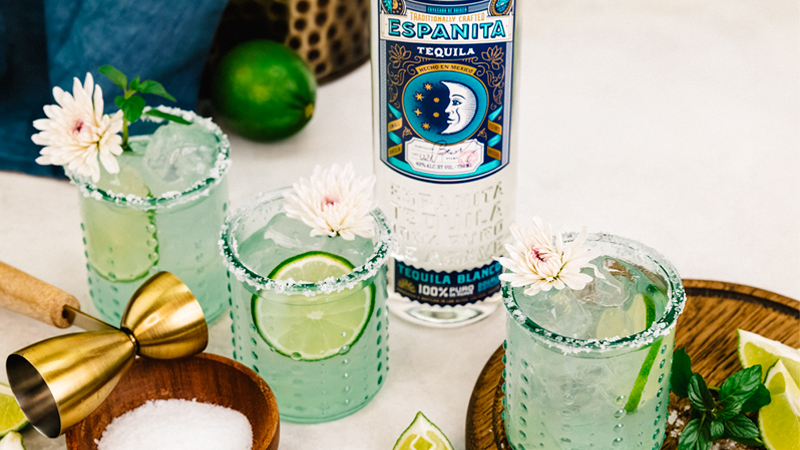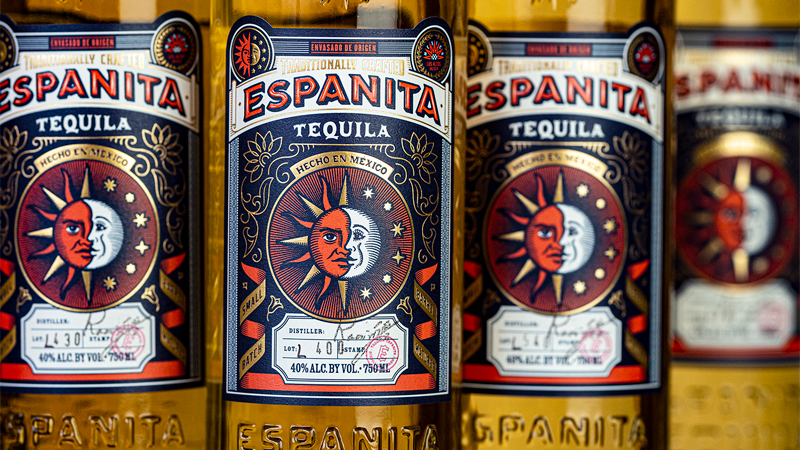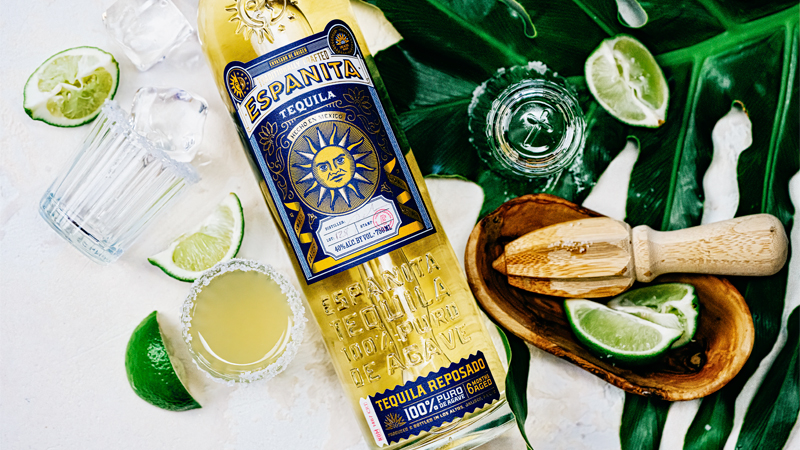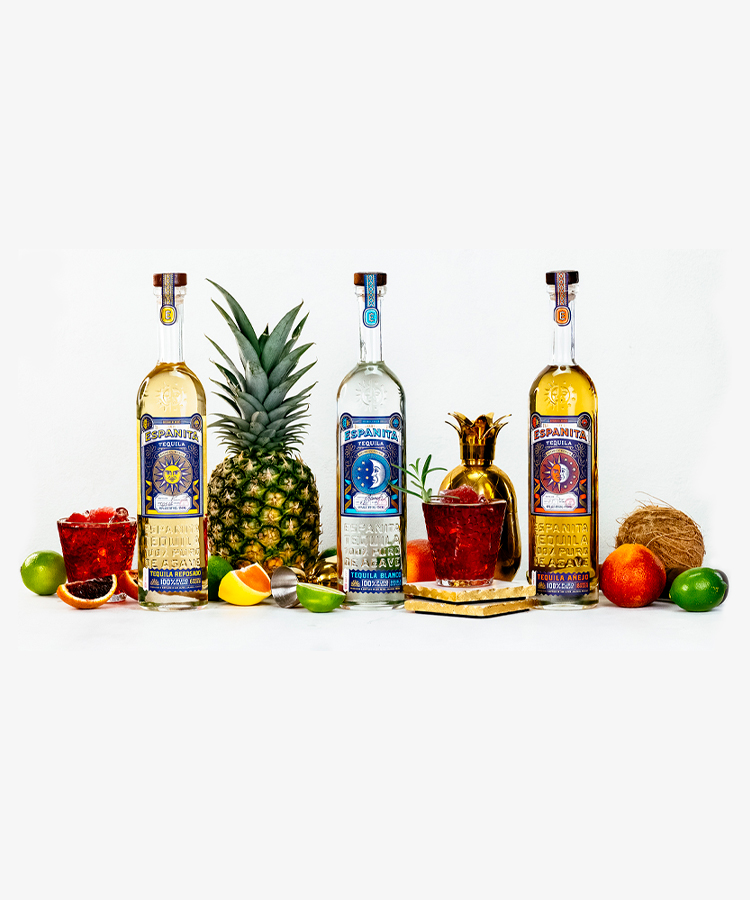
Many tequilas will taste fine in a mixed drink. Those that are pleasant to sip on their own are slightly less numerous. The rare birds that excel at both — offering deep agave flavors and complex aromas that can stand up to mixers while also being a joy to sip neat or on the rocks — are fairly hard to find.
But connoisseurs will point to one standout that plays both roles to perfection: Espanita Tequila, an extremely drinkable luxury tequila of award-winning, artisanal quality, which works perfectly as either a sipping tequila or a base for charismatic cocktails.
How does it manage to win at both games? The brand’s numerous awards, medals, and recommendations are largely due to the location where Espanita Tequila comes from and how it’s made. All three of Espanita Tequila’s age statements — Blanco, Reposado, and Añejo — are created with time-honored, artisanal production methods in the heart of the drink’s homeland.
To start, Espanita Tequila’s provenance has a giant influence on its flavor profile. All of its blue agave comes from its home in the Los Altos highlands of the Mexican state of Jalisco, where the agave plants end up with a much higher sugar content than the agave grown in lower elevations: approximately 26 to 28 percent sugar for highlands agave versus 23 to 24 percent sugar in the lowlands. In addition, the agave in the Los Altos highlands enjoys a much longer growing season (growing cycle or life span. The meaning here is that lowlands agave matures in 7 to 8 years and in highlands in 9 to 12 years). All of this results in agaves with sweeter, fruitier, and more floral notes, as well as rich, aromatic citrus tones.

To complement those natural flavors that come from the agave plants themselves, Espanita Tequila slow-roasts its agaves in an old-fashioned horno, the traditional stone oven of the region that provides a gentle, continuous circulation of steam, which softens the fibers and gently cooks the agaves to release their rich juices. (Experts will tell you that, once roasted, the traditionally slow-cooked agave piñas taste like exquisite, syrupy candies.) It might take a while, but the time invested in this part of the process adds much to Espanita Tequila’s complexity and character. The slow, unhurried method of roasting in a horno — which lasts 30 to 48 hours, followed by an additional 36 hours of cooling — creates richly sweet, honeyed, earthy aromas, bringing deep agave notes to the fore.
The next step is similarly artisanal: natural fermentation. Espanita Tequila uses two proprietary yeast strains for its fermentation, which add to the depth and complexity of the aromas and flavors from its agave. This careful, time-consuming fermentation process is very much dependent on the time of year. It can last two to five days in warmer weather, or it can take as long as 12 days in colder temperatures for the yeast to do its thing, by which it creates its own complex flavor compounds.

In the final stage of this artisanal process, Espanita Tequila is distilled slowly, in small batches, starting in a 5,000-liter alembic, a type of still used since ancient times, before finishing in a 1,500-liter pot still, a similarly old-fashioned form of equipment. While alembics and pot stills are not nearly as efficient as the more modern column or continuous stills, they are famous for producing artisanal spirits with rich character. (For proof, just ask your nearest whiskey geek about the glories of pot stills. Be sure to give yourself plenty of time for his response.) Espanita Tequila’s slow distillation over the course of at least six hours in each distilling apparatus might take more time than other methods, but it also results in an extremely smooth spirit with great mouthfeel, which retains the unmistakable flavors and aromas of slowly roasted highland agaves.
It’s not hard to spot Espanita Tequila’s emphasis on unhurried, artisanal production. Both of Espanita Tequila’s aged expressions, Reposado and Añejo, are given far more time than what is required by law: Espanita Reposado Tequila spends six full months in oak barrels, instead of the legal minimum of two months, while Espanita Anejo is aged for a full (up to)18 months instead of the legal minimum of just one year. Even Espanita Tequila’s luxurious bottles show off raised lettering and beautiful, sun-and-moon symbol designs evoking the timeless craftsmanship of old Mexico.

That emphasis on traditional production methods has resulted in some major accolades for Espanita Tequila over the past few years, with the brand regularly winning awards, medals, and recommendations from judging panels, experts, and spirits competitions. (A case in point: The gold medal and enviable 94-point score Espanita Reposado Tequila earned from the Beverage Testing Institute.)
More practically, those unrushed, artisanal production techniques have resulted in a great resource for tequila lovers, no matter how they want to experience the drink. Sure, there are plenty of tequilas that work fine in cocktails, and most shops carry a fair number of sipping tequilas. But Espanita Tequila is one of the few that is not just as enjoyable in a cocktail as it is when sipped neat or on the rocks: Connoisseurs have called out the brand’s ability to actually elevate mixed drinks with its rich, agave-forward flavor profile. While other tequilas often tend to disappear in cocktails, the complex flavors and crisp floral aromas of traditionally roasted agave can truly stand up to strong mixers.
And that makes a win for everyone: for the amateur mixologists at home, for the working professionals behind the stick — and for all of us who love what’s in the glass.
This article is sponsored by Espanita Tequila. To learn more, visit EspanitaTequila.com.
